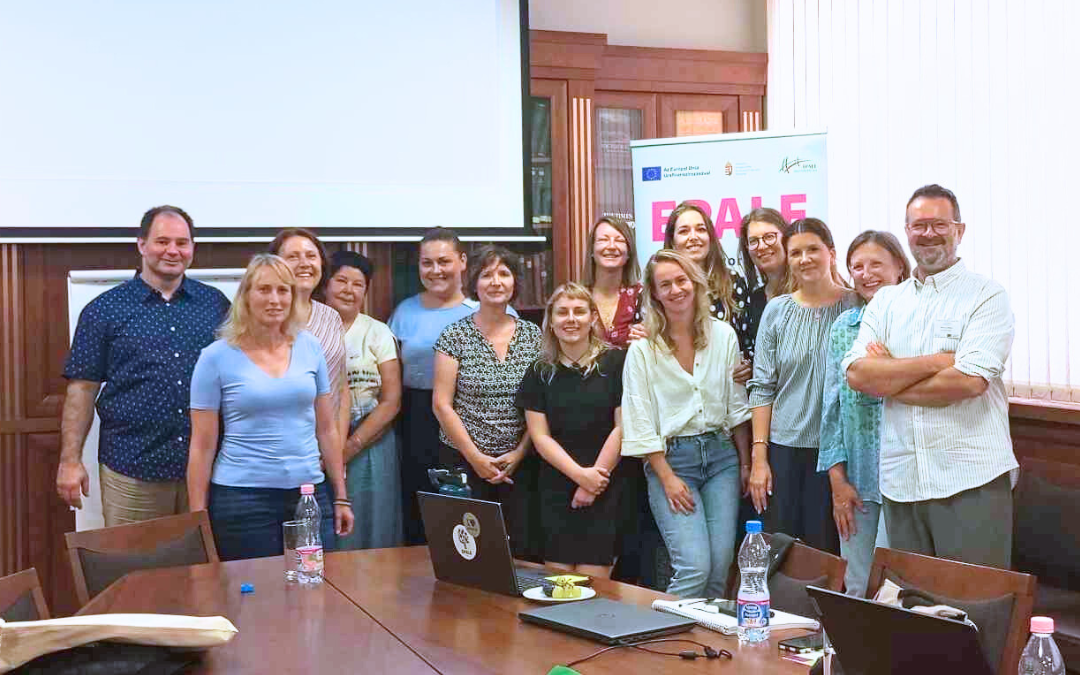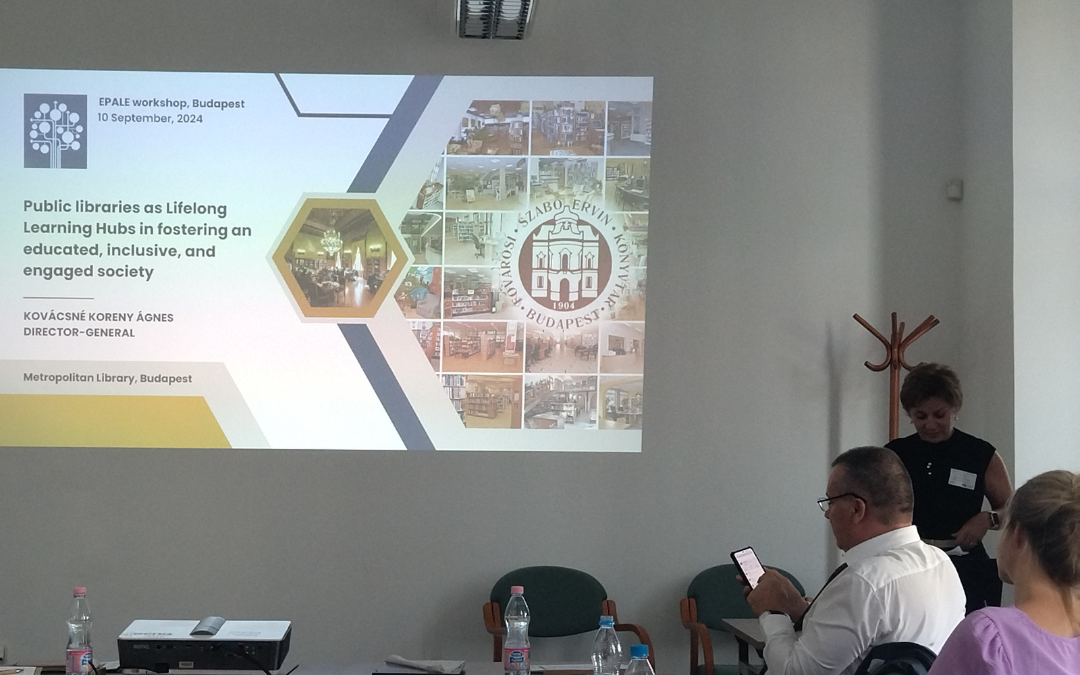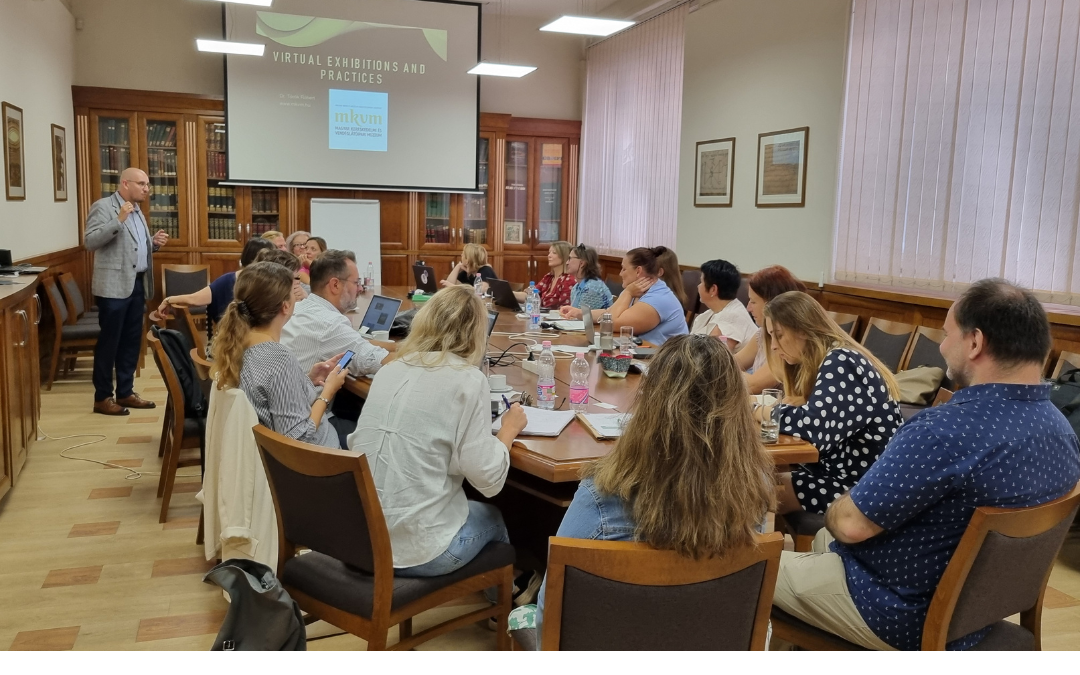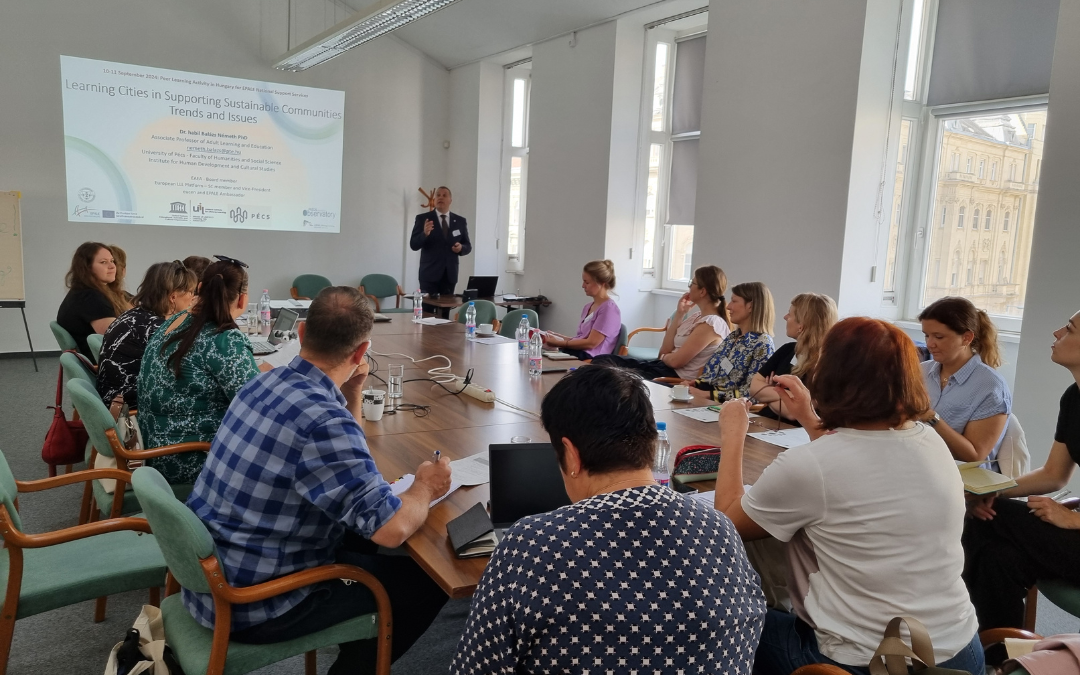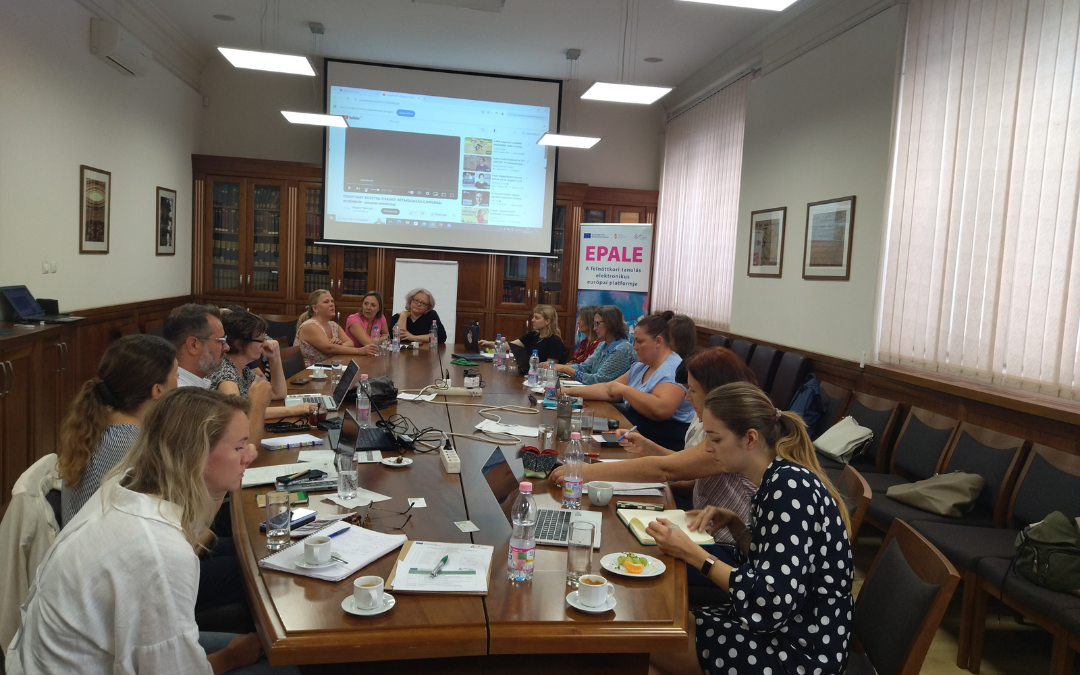This broader approach was also reflected in our event programme. The speakers included representatives from the National Institute for Culture, the Metropolitan Ervin Szabó Library, FabLab Budapest, two museums and one of their vocational secondary schools.
From specific to broader missions, from archives to open access
We explored the innovative work of these institutions, which open their doors wide to adults, inviting them into exciting and diverse learning experiences. Most of these are supported by digital tools, making the acquisition of digital skills a prerequisite and often a beneficial side effect of the process. The same applies to the intergenerational and intercultural aspects of such learning.
Without a doubt, the examples presented were inspiring while also prompting us to reflect on what exists in our own countries. Our libraries and museums are also innovative and have long since expanded beyond their once-narrow missions. We, too, have FabLabs (think of the Centre Rog!). Slovenia also takes pride in its three learning cities (Ljubljana, Laško and Ptuj).
Dr Balazs Nemeth, president of the Hungarian network of universities involved in lifelong learning and an EPALE ambassador, passionately spoke about these cities in his introduction. He also mentioned Learning City Festivals, particularly in Pécs, his hometown. The last topic of the meeting was fascinating: the accessibility of info-communications in museums. We learned from an actress about her work in recording audio narrations, accompanied by videos showing sign language interpretations of the same content. They actively involve people with disabilities in their efforts, following the principle: nothing for them without them!
In conclusion
We concluded that, in the coming months, we will organise similar events in our own countries and showcase innovative learning environments in various ways. In Slovenia, as part of the EAAL project, we will create new videos and use some existing ones produced in EAAL forums, such as those made as part of the forums on skills for cultural awareness and expression or green skills.
Perhaps you will be able to read about our next year’s achievements in a new edition of the EPALE Online Magazine. The previous issue, published under the leadership of NSS Belgium in 2023, already touched on these themes.
I dare say that innovation (in environments and content) is deeply embedded in adult education. Moreover, wherever innovative learning environments emerge, adults are undoubtedly involved. Journeys through the worlds of knowledge (existing and emerging) can indeed be lifelong!
Zvonka Pangerc Pahernik, MSc (zvonka.pangerc@acs.si), SIAE

